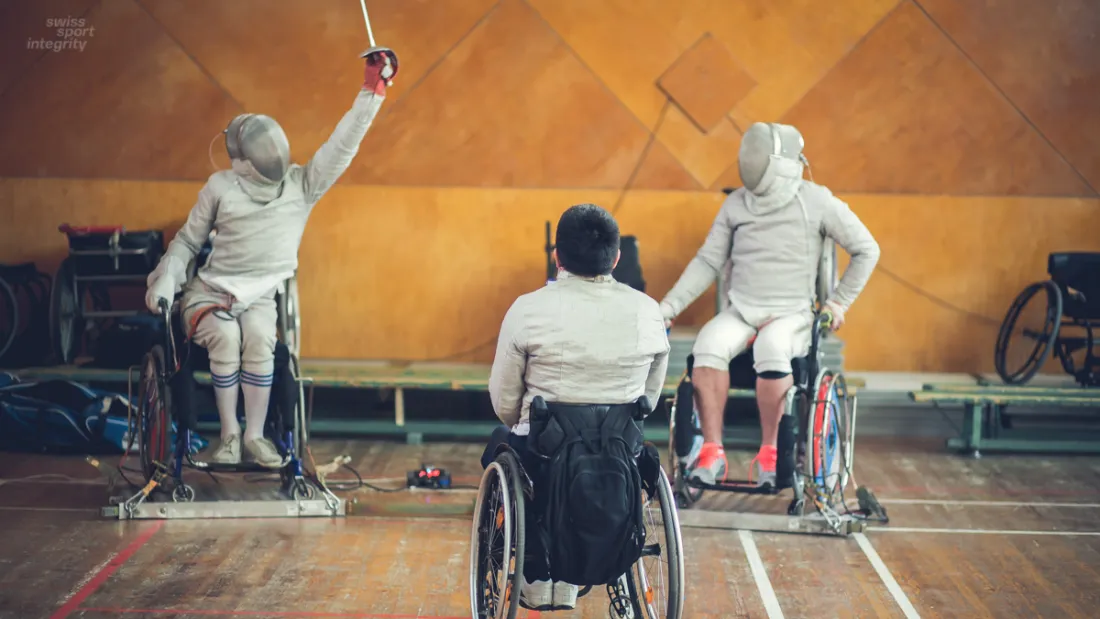As coaches, parents, doctors, or physiotherapists, you are among the key players in the athlete’s sporting circle. With this comes a special responsibility for supporting these protégés. You play an important role in supporting the athletes and achieving sporting success through clean performance. The following considerations may guide you in this process.
How do I Act as a Role Model? What Culture Should I Exemplify?
As a member of sporting support personnel, you are a figure of trust and an important role model for the athletes. Your behavior will be observed and – consciously or subconsciously – emulated. Your positive attitude can anchor the “spirit of sport” in your athletes.
Sports Culture
Sport can promote respect, friendship, joy, resilience, and a healthy lifestyle. However, if such values are not deeply rooted, sport can result in deception, lies, arrogance, and an excessive desire to succeed.
You can promote positive values by adopting the following behaviors:
- Teach the rules to young people, along with their opponents and team members, and teach them to respect both officials and themselves. Also educate them that this should be seen as an important component of their sport.
- Praise respect, personal development, integrity, and fairness at least as often as you praise sporting success.
- Identify defeats as a chance to learn, based on the motto of “I never lose. Either I win or I learn”.
- Intervene if athletes are demonstrating unfair behavior of any kind in order to win.
Doping Mentality
The regular use of performance-enhancing products in the broadest sense (e.g. nutritional supplements) can create a doping mentality. A doping mentality means that someone believes that the use of certain substances, miracle cures, or medications can boost their performance or mental strength. If young athletes become accustomed to consuming glucose or energy drinks, for example, they may develop a subconscious psychological dependence. The frequent consumption of “harmless” products and nutritional supplements increases the probability of these athletes deliberately turning to prohibited substances or methods at a later date.
In addition to practicing these values, a healthy lifestyle compatible with sport also sets a good example. As a point of reference for athletes, you can follow and encourage a healthy diet and a measured approach to nutritional supplements, energy drinks, and medication.
How Can I Provide Support?
Train, Advise, Recall
Athletes learn about sport-specific rules and tactics from their support personnel. It is down to these staff to explain regulations such as the anti-doping provisions. Familiarize yourself with these regulations, and communicate the most important rules and tips. It is often essential to go over the most important details again on a regular basis.
Identify, Support, Intervene
Certain characteristics and situations allow you to recognize where athletes are subject to an increased risk of violating the anti-doping rules, either deliberately or unintentionally. You should seek to discuss the following observations, and offer support:
- Injury and sickness: Unconscious choice of prohibited treatments, deliberate attempts to reduce the recovery period by using prohibited substances or methods.
- Character and culture of the sport in question: History of doping, body weight as a success factor, overriding significance of strength or stamina, widespread attitude of “everyone else is doping, too”, etc. In the past, athletes training in such sports have turned to doping more frequently.
- Sporting pressure: Upcoming contract renewals, upcoming selection processes, failures, implicit parental expectations, impressive progress by colleagues or opponents, etc. These situations can all trigger the temptation to improve chances of success through the use of prohibited substances.
- Doping mentality: Regular consumption of energy drinks, widespread use of supplements, etc. Psychological dependence on nutritional supplements is a risk factor in subsequent doping deceit.
- Personality traits: Low self-esteem, very high expectations of oneself, impatience and unwillingness to train hard and with discipline, negative response to failure, distinct focus on results rather than personal development, etc. Not everyone reacts in the same way to comparable situations, and some require more care to mature as athletes.
- Attitude towards fairness and health: Acceptance of unfair behaviors, trivializing the health, social, and financial consequences of doping, admiration of individuals who have attracted attention with their unsporting conduct or have been punished for doping offences. Where an athlete’s fundamental attitude is not based on fairness and integrity, the risk of violating the regulations increases significantly.
- Personal crises: Relationship problems, financial difficulties, academic or professional problems, etc. Sometimes, in such cases, athletes develop the hope that they can at least ensure sporting success through the use of prohibited substances.
Support During Testing
If an athlete is selected for testing, they can and should be accompanied by a trusted person. This applies in particular to minors. This allows you to provide moral support to your protégé, and to help them to understand their rights and obligations.
Which Rules Apply to Me Specifically?
The anti-doping rules apply only to active athletes. However, there are also numerous regulations which apply to support personnel.
Article 2 of the Swiss Olympic Doping Statute specifies violations affecting support personnel in particular. These staff may also have sanctions imposed on them, and be excluded from all sporting activities.
Article 22 of the Swiss Federal Sport Promotion Act specifies offenses which relate to support personnel and which are punishable by the national courts with a fine or prison sentence.

